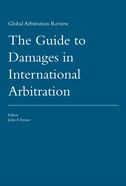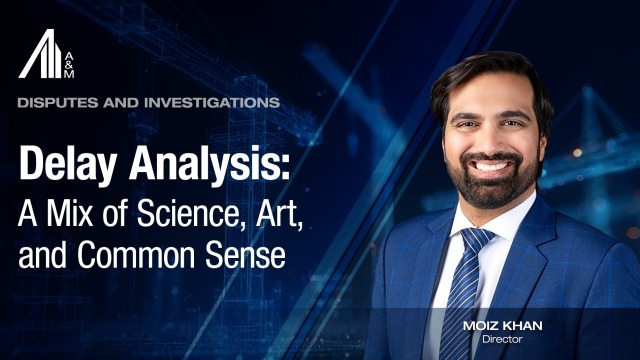When applying the income approach, the theory of business valuation determines the value of a business by assessing the present value of its future net cash flows. Since the requirement of full compensation is generally interpreted to put the damaged party into the same economic (i.e., financial) situation it would have been in but for the wrongful act, the methodology and approaches widely accepted for business valuation are also applied in the determination of damages.
In a recent article*, Alvarez & Marsal (A&M) Managing Director Alexander Demuth introduces the discounted cash flow (DCF) methodology and its approaches, and then discusses, in the context of international arbitration, its application to the assessment of damages, the assumptions required to adequately and reliably use this methodology and the documentation required to support its results.
*First published in Global Arbitration Review’s Guide to Damages in International Arbitration, ed. John Trenor, December 2017

GET THE ARTICLE:
Income Approach and the Discounted Cash Flow Methodology - 2018
Deepfakes and the Shifting Burden of Scrutiny for Litigators
February 19, 2026
The increasing sophistication of AI has made it easy to manipulate evidence, and taking steps to triage evidence with
procedural diligence and technological support has become the litigator's burden.
Delay Analysis: A Mix of Science, Art, and Common Sense
February 17, 2026
Delay analysis supports the tribunal process by setting out the sequence of events and identifying the causes and extent of the delay. Director Moiz Khan explores how delay analysis, when applied as a mix of science, art and common sense, forms reliable expert evidence.
The Rise of AI Agents: The Next Big Thing in eDiscovery
February 16, 2026
Gary Foster, MD examines the rise of AI agents, the latest evolution of AI. Unlike traditional machine learning or generative AI models that perform single, isolated tasks - AI agents represent a paradigm shift: they can reason, plan, and act autonomously across workflows.
Alvarez & Marsal Bolsters Disputes and Investigations Capabilities in India with Appointment of Tanmay Bhargav as Managing Director
February 13, 2026
Leading global professional services firm Alvarez & Marsal (A&M) India has announced the appointment of Tanmay Bhargav as Managing Director within its Disputes and Investigations practice.


